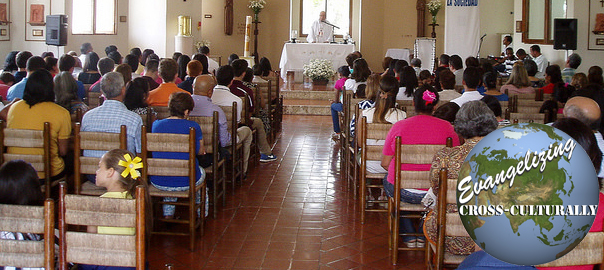My friend Geeta is a first generation Christian. She grew up in a Hindu family—her father was a conservative Hindu—and discovered Christianity later in life.
First generation Christian, convert, people from other faiths, Hindu/Muslim background— there are many ways to describe someone who became a Christian later in life. Some convert to Christianity as an adult, others are part of a whole family conversion—following the decision of the head of the household to follow Christ.
Who are First Generation Christians?
Committing your life to Christ when you have grown up in a different belief system is a decision which no one should make in a hurry. For someone from another faith background, it may be the biggest decision of their life. They may be turning their backs on what they once believed to be true, and telling others that they no longer believe in what they were taught growing up. It is a blow to the family, and often leaves the new Christian feeling guilty; knowing that they cannot turn their back on Christ, and yet being very aware of the pain that it causes their family. The repercussions are far reaching with not only immediate family, but extended family paying the price of the belief their wayward child holds. It is with this emotional baggage the first generation Christian comes into the Church.
Along with this emotional baggage, some new believers enter the Church expecting everything to be beautiful and perfect. However, some quickly encounter the harsh reality that the Church is anything but perfect. Instead, it is filled with broken people.
When I say Church, I mean the body of Christ, not a building, though to even make that distinction is hard for the first generation Christian, because they do not know the difference. For them, every Christian is a staunch follower of Christ.
What are some issues that arise as a result of conversion?
After an individual converts to Christianity, they face many issues that others may not realize. Many will face cultural issues. Religion is a deeply rooted part of many cultures, so leaving behind one’s religion means leaving behind a strong part of the culture they grew up in.
Some of the struggles first generation Christians face:
1. Living with the guilt of the pain they cause their families.
2. Dealing with their own ‘darknesses’—As first generation Christians, we have our own baggage to deal with. We feel guilty as our families sometimes feel betrayed because we have chosen a road that is different than the rest of the family. We see the pain that our families go through when there are weddings or funerals in our family or when our sister is married off to save the family honour—the price the rest of the family has to pay is high. We would do anything to stop the pain, but we are helpless. Our change of faith has continued to snowball out of our control. I have heard many first generation Christians say, “My family paid the price.”
Adding to the pain are other Christians who speak ill of our families or of people of different faiths. Sometimes we feel that as Christians we may NOT show the same kind of graciousness that our families have shown. Yes, harsh actions have been taken by our families, but what would we do, if the consequence of one person’s actions would have a ripple effect, touching everything?
Families question why we felt it necessary to convert to Christianity. In a way, conversion does not just take place for the new believer, but it leads to the upheaval of the whole family as they process the change. They often progress through the five stages of grieving—shock, denial, blaming, bargaining and acceptance. How long the family stays in a particular stage depends on how well one is equipped to handle the change.
3. The first generation Christian also faces struggles entering the Christian culture. They may feel alienated—having no one to go to who understands their background.
How can the Church help first generation Christians?
- Develop a true understanding of other faiths – We can never win anyone over by looking down at them. Instead, learn about their background. Listen to their struggles, and be sympathetic to their point of view so you can help them grow in their new faith in Christ.
- Live your life in a godly manner – Help the new believer understand that Christianity is less about rules and regulations and more about following Jesus and HIS example.
- Disciple them – Be understanding and undergird them in this new journey.
- Talk with them – Open yourself for conversations with them about how to live biblically. Listen to their questions, doubts, and struggles.
- Welcome them – New Christians sometimes face alienation from their families. Open your home to them. Place them with a ‘foster family’ who can love and support them. Through personal relationships like these, their faith can be gently nurtured.
- Encouragement – Some new Christians will make a 180-degree turn, leaving behind everything they once knew. Encourage them to keep loving those who were a part of their lives. Encourage them to love everyone as Christ loved.



Leave A Comment